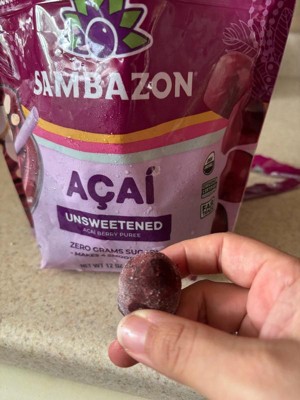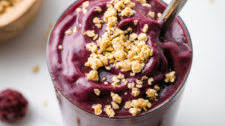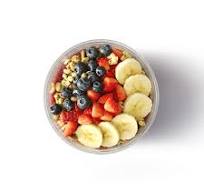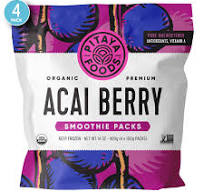Indulge in the Delightful Sambazon Acai Bowl Experience
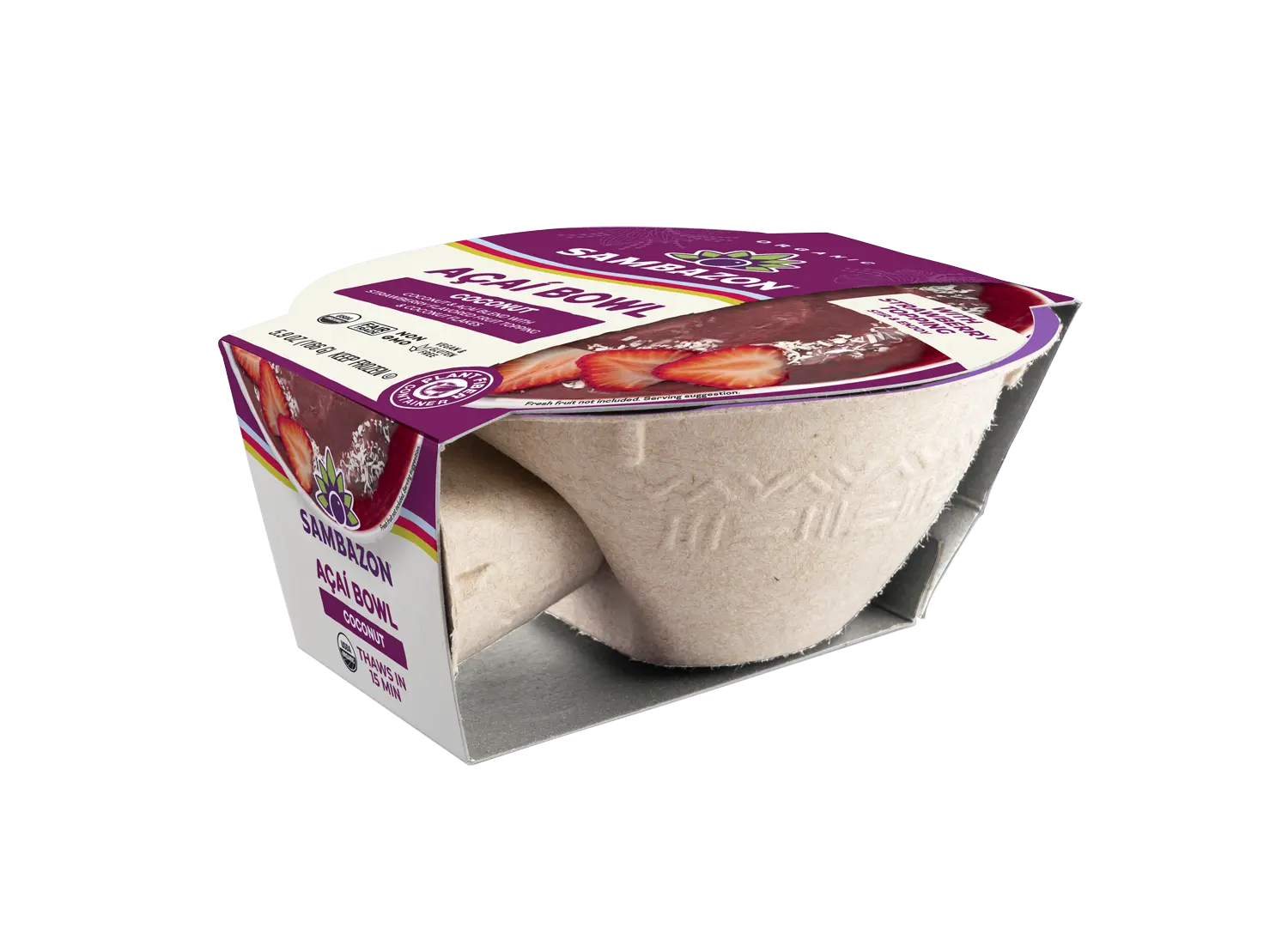
The Delicious and Nutritious Sambazon Acai Bowl
Are you looking for a tasty and healthy treat that will satisfy your cravings while also providing a nutrient boost? Look no further than the Sambazon Acai Bowl! This delightful dish has been gaining popularity for its delicious flavor and numerous health benefits.
The star ingredient of the Sambazon Acai Bowl is the acai berry, a small, dark purple fruit native to the Amazon rainforest. Packed with antioxidants, fiber, and healthy fats, acai berries are known for their ability to boost energy levels, improve digestion, and support overall health.
When blended into a smoothie bowl with other nutritious ingredients such as bananas, berries, granola, and honey, the result is a refreshing and satisfying meal that can be enjoyed any time of day. Whether you’re looking for a quick breakfast on-the-go or a post-workout snack to refuel your body, the Sambazon Acai Bowl is a versatile option that can be customized to suit your taste preferences.
Not only is the Sambazon Acai Bowl delicious and nutritious, but it is also environmentally friendly. Sambazon sources its organic acai berries sustainably from the Amazon rainforest, supporting local farmers and helping to preserve the biodiversity of this vital ecosystem.
So next time you’re in need of a healthy and delicious pick-me-up, consider treating yourself to a Sambazon Acai Bowl. With its irresistible flavor and nutrient-packed ingredients, it’s sure to become your new favorite go-to snack!
5 Tips for Crafting the Perfect Sambazon Açaí Bowl
- Blend acai packets with frozen fruits for a thicker consistency.
- Top your bowl with granola for added crunch and texture.
- Drizzle honey or agave nectar for extra sweetness.
- Add a dollop of nut butter for a protein boost.
- Garnish with fresh fruits, coconut flakes, or chia seeds for added flavor and nutrition.
Blend acai packets with frozen fruits for a thicker consistency.
For a deliciously thick and creamy Sambazon Acai Bowl, try blending the acai packets with frozen fruits. This tip not only enhances the texture of the bowl but also adds a burst of flavor from the mixed fruits. By combining the frozen fruits with the acai packets, you can create a satisfyingly thick consistency that is perfect for scooping up with your favorite toppings. Whether you prefer bananas, berries, or mangoes, experimenting with different fruit combinations can elevate your acai bowl to a whole new level of deliciousness.
Top your bowl with granola for added crunch and texture.
For an extra satisfying and delightful experience with your Sambazon Acai Bowl, consider topping it off with some crunchy granola. The combination of the smooth acai base and the crispy texture of granola adds a wonderful contrast that will tantalize your taste buds. Not only does the granola provide a satisfying crunch, but it also enhances the overall flavor profile of the bowl, making each bite a deliciously balanced treat. So go ahead and sprinkle some granola on top of your Sambazon Acai Bowl for an added layer of enjoyment!
Drizzle honey or agave nectar for extra sweetness.
For an added touch of sweetness to your Sambazon Acai Bowl, consider drizzling honey or agave nectar on top. These natural sweeteners not only enhance the flavor of the acai bowl but also provide additional health benefits. Honey is known for its antioxidant and antibacterial properties, while agave nectar is a low-glycemic sweetener that can help regulate blood sugar levels. So go ahead and indulge in a guilt-free treat by adding a drizzle of honey or agave nectar to your Sambazon Acai Bowl for an extra burst of flavor!
Add a dollop of nut butter for a protein boost.
Enhance the nutritional value of your Sambazon Acai Bowl by incorporating a dollop of nut butter for a protein boost. Nut butters such as almond, peanut, or cashew can add a creamy texture and rich flavor to your bowl while increasing its protein content. This simple addition not only enhances the taste but also provides sustained energy and satiety, making your acai bowl a well-rounded and satisfying meal option. Try experimenting with different nut butter varieties to find your perfect combination of flavors and nutrients for a delicious and nourishing treat.
Garnish with fresh fruits, coconut flakes, or chia seeds for added flavor and nutrition.
Enhance the flavor and nutritional value of your Sambazon Acai Bowl by garnishing it with fresh fruits, coconut flakes, or chia seeds. These colorful and nutrient-rich toppings not only add a delightful burst of flavor but also provide additional vitamins, minerals, and antioxidants to boost the health benefits of your bowl. Whether you prefer the tropical sweetness of fresh fruits, the crunchy texture of coconut flakes, or the added protein and omega-3 fatty acids from chia seeds, these garnishes offer a delicious and nutritious way to elevate your acai bowl experience.
